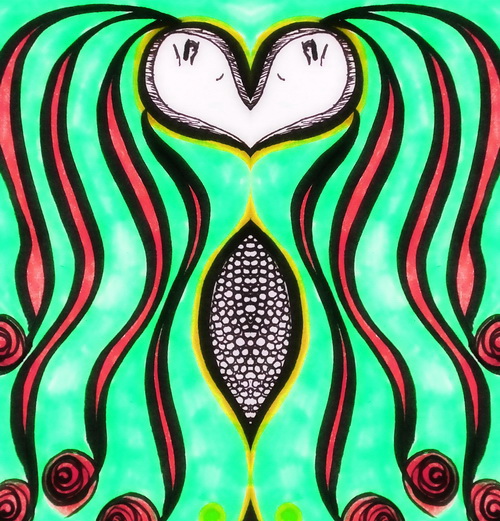
We don’t, for the most part, question our instinct to go to the doctor for physical check-ups and to keep our bodily affairs in order.
But do we always remember do this with our psyches, or mental and emotional selves? Or do we shelve this kind of self-care for later, if we even think about it at all?
We often take these more invisible or hidden parts of ourselves for granted. We assume we can put off for later tending to those parts of us that are less glaringly problematic, despite some very important signs that we need attention—as we know, stress doesn’t have an obvious face, but presents itself in so many physical, debilitating forms.
Part of the issue is that we sometimes assume things don’t change all that dramatically within us, that we are some kind of fixed self who, for example, likes certain things and dislikes others, and has a certain set of priorities in life, and so on.
Because of this, we can tend to play out our lives on auto-pilot, without really determining if the things we are doing, and the people we are doing them with, are actually aligned with who we are at the present moment. Doing so works against the ability to live mindfully, to fully respect ourselves and others, the way we—and they—deserve.
It can be pretty daunting to think about having a nice, long sit-down with ourselves, to say hello, (re)introduce ourselves, and ask the all-important question of “what is going on.”
I had a great teacher who once said that we should always be asking this question—what is going on?—and ever since then, I’ve been unable to take this question lightly.
For example, he once showed a group of us a photo of a person—it was as simple as that. He then asked us, “What is going on here?”
We were quizzical, and remained silent.
“Think about it,” he said.
“It’s a person,” one of us answered.
“But what is really going on here?” the teacher continued. “Is this a person, or a photograph? Can a photograph of a person, just a piece of paper, be a person, and if it isn’t a person, why are we tempted to say it’s a person before we say that it is a photograph of a person?”
All at once, photography became a most complex, puzzling and mysterious medium, and I learned never to be complacent about what I think I know, and how I know it.
Nowhere is this more important than when it comes to self-knowledge and self-care.
Since we are always changing and evolving, whether we want to or not, we can learn surprising things by honouring ourselves with a check-in.
We can check in with the self in a variety of ways, and we can do this all in our heads, say, on a long nature walk, or even better, by writing it down, which can force us to be more diligent and self-reflective about the process.
We can examine the state of our physical self.
How do I feel? Am I tired, frenetic, in balance? Are any muscles tighter than usual? Is anything out of alignment? Does anything hurt, or feel different than it used to? Am I getting headaches, and if I am, more or less than usual? Is there something my body needs now that it didn’t need before, and vice versa?
We can examine the state of our emotional self.
What feelings are going through me right now? What feelings have been cropping up repeatedly in my life recently? How have my feelings changed from the ones that used to preoccupy me? Am I angry, sad, frustrated, happy, at peace? How long do these feelings last? Do I feel I’m in control of my feelings? Which relationships bring me joy, and do I make enough time for them?
We can examine the state of our mental self.
What kinds of thoughts occupy my mind these days? Do I focus on the past? Do I fantasize or worry about the future? Am I distracted, or focused? What subjects are interesting to me, and do I make time for these things in my life? Do I feel balanced, and able to handle the tasks I have to do every day? How might I streamline better to function at my tasks at hand?
We can examine the state of our spiritual self.
Am I fulfilled? Do I feel something is missing? Is there harmony between myself, those around me and the environment? Is the way I spend my time in alignment with the way I want to be living my life? Do I know which life I want to have in an ideal world, and how can I move closer to that ideal?
If thinking about all this sounds daunting, it can be very helpful to answer these questions as lists, or in point form. Another great idea is to set aside some time to jot down a list of things you have learned as a result of your experiences. If you limit yourself to a relatively small number, like five things, you will force yourself to get to the most essential life lessons you feel you’ve acquired.
There’s a great chance that these top fives will surprise us, and tell us a lot about what our priorities are; this is a great starting point in thinking about the changes we can make to achieve more harmony within ourselves, and looking out to the world.
These intensive check-ins are like huge energy bubbles that can help sustain us in a chaotic world, helping us understand what makes us tick, so to speak, so that we can become more grounded in awareness of self. They also make periodic, mini check-ins easier to accomplish, so that we can develop a more fluid sense of our deepest and ever-evolving selves.
Doing these on a frequent basis—eventually, it can become as natural as breathing—will help us react with clarity and mindfulness when unexpected situations arise, difficult or otherwise, and integrate as fully and happily as possible into each moment of the life we are living.
Relephant:
A Simple Self-Care Tip for Bad Days & Burnout.
Author: Tammy T. Stone
Editor: Catherine Monkman
Facebook is in talks with major corporate media about pulling their content into FB, leaving other sites to wither or pay up if we want to connect with you, our readers. Want to stay connected before the curtain drops? Sign up for our curated, quality newsletters below.










Read 4 comments and reply